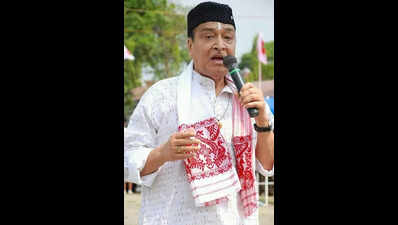ARTICLE AD BOX

Guwahati: The legendary music maestro, Bhupen Hazarika, composed the iconic song “Manuhe Manuhor Babe, Jadihe Akanu Nebhabe” (“If humans no longer care for one another...”) during the 1960s, against the backdrop of Assam’s language movement.The song, however, transcends all barriers to fit any era, any location, or any society through its philosophy of humanism and social justice, say Hazarika’s close associates and melophiles on the eve of his birth centenary celebrations.Kamal Kataki, who accompanied Hazarika on guitar from 1984 until his demise in 2011, said humanism and social justice are the core philosophies that “Manuhe Manuhor Babe” seeks to inculcate.
“Rooted in the philosophy of humanism and social justice, the song continues to resonate deeply, advocating for compassion and ethical responsibility as core values,” he added.Musically inspired by the American folk ballad “Hang Down Your Head, Tom Dooley,” Kataki said this timeless piece was penned by Hazarika, underscoring its universal appeal. “It was composed when the language movement gripped the state.
The situation worsened a lot. The effort through the song was to protect peace, harmony, and empathy towards others,” he added.Kataki said Hazarika even led a group of singers, including Hemanga Biswas, Khagen Mahanta, and Dipali Borthakur, during the language movement. They travelled across the state and performed, conveying the message of peace, harmony, and brotherhood.“Even at the request of the then chief minister Bimala Prasad Chaliha, Hazarika performed this particular song in the Nagamese language in the camps of the rebels there, and this effort helped in reducing the killings in the neighbouring state. Later, this song became a masterpiece in Bangladesh as well,” he said.The song has been translated and performed in several major Indian languages such as Hindi, Bengali, and English, along with several regional and tribal languages across Assam and the northeast.



.png)
.png)
.png)
















 2 days ago
4
2 days ago
4







 English (US) ·
English (US) ·